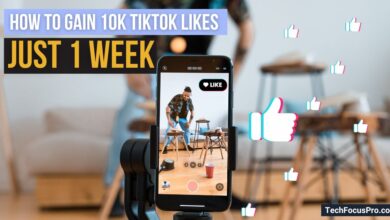Why Was Facebook’s Acquisition of WhatsApp for $21.8b Approved?

The acquisition of WhatsApp by Facebook for $21.8 billion marked a significant milestone in the technology industry, underscoring the escalating trend of consolidation among digital platforms.
This deal was not merely a financial transaction; it represented a strategic move by Facebook to strengthen its foothold in the messaging space, where user engagement is paramount.
The approval of this acquisition reflects the growing importance of messaging applications in shaping online communication and social interactions.
As we explore this deal’s strategic, financial, competitive, regulatory, and long-term implications, we gain insight into the broader dynamics of one of the most influential mergers in recent tech history.
Strategic Reasons for the Acquisition
When Facebook bought WhatsApp, it had several vital reasons in mind that helped explain why the deal made sense.
Expansion of User Base
First, WhatsApp already has a huge number of users worldwide. This allowed Facebook to reach more people using messaging apps, enhancing its presence in a space that was becoming increasingly important for social interaction.
By acquiring WhatsApp, Facebook could connect with different user groups, especially those who prefer messaging over other forms of communication.
Integration of Services
Second, Facebook saw the opportunity to combine its existing services with WhatsApp’s messaging features, which meant creating a more interconnected experience across Facebook, Instagram, and WhatsApp.
Users could share messages and photos more efficiently, increasing engagement on all of Facebook’s platforms. This integration would help keep users more active and connected within the Facebook ecosystem.
Financial Considerations

When Facebook decided to buy WhatsApp, they had to think carefully about the money involved.
Valuation of WhatsApp before acquisition
First, Facebook looked at how much WhatsApp was worth before the sale. This means they had to consider how WhatsApp made money and how much it could earn in the future, especially since many more people were using smartphones and messaging apps.
Facebook’s financial capability
Next, Facebook had to check how stable its finances were at that time. It needed to make sure it had enough money to afford the deal without putting its business at risk. It was also crucial for Facebook to plan for future investments in new technologies.
Competitive Landscape

When Facebook bought WhatsApp, they also considered what other companies were doing in the messaging world.
Market competition
First, big companies like Google and Apple were trying to capture users in the messaging space. Facebook knew it was essential to keep its users loyal and active on its platforms to stay ahead of these competitors.
By acquiring WhatsApp, Facebook strengthened its position and made it harder for other companies to compete in this crucial area.
Defensive Measure
Additionally, Facebook wanted to ensure no one else could buy WhatsApp. If another company gains control over WhatsApp, it might use it to become a stronger competitor.
By securing WhatsApp for itself, Facebook expanded its services and protected its market share, ensuring it maintained a leading edge in the messaging ecosystem.
Regulatory and Legal Factors

When big companies like Facebook want to buy other companies, they have to consider laws and regulations to ensure they’re doing everything by the book.
Antitrust Considerations
First, antitrust laws prevent any one company from gaining too much power and controlling a market. Like government agencies, regulators must review an acquisition to see if it might hurt competition.
For Facebook, getting the approval of these regulatory bodies was essential; it meant that they could confidently move forward with the acquisition without facing legal issues later on.
Privacy and Data Security Assurances
Second, there are concerns about privacy and how user data is handled. WhatsApp is known for its end-to-end encryption, which means that only the people communicating can read the messages—no one else, not even WhatsApp.
Facebook had to assure regulators and the public that it would respect users’ privacy and keep their data safe. This included explaining how they would manage user information and what steps they would take to avoid data misuse, helping to calm worries among users and regulators alike.
Long-term Vision

When Facebook acquired WhatsApp, they weren’t just thinking about the present; they also had plans for the future. A big part of this long-term vision was to make WhatsApp more than just a messaging app.
Facebook wanted to turn it into a platform where users could do many different things, like making video calls, sharing photos, and even shopping.
By expanding WhatsApp’s features, Facebook aimed to keep users coming back and using the app for various needs in their daily lives.
Moreover, Facebook wanted to connect WhatsApp with other platforms like Instagram and Facebook. This would make it easier for users to interact with friends and family across different apps.
In the long run, Facebook hoped that by investing in WhatsApp and planning ahead, they could maintain a leading role in the tech world, ensuring that they continued to be a significant part of how people communicate and connect online.
FAQs
What was the Facebook’s motivation to acquire WhatsApp?
The acquisition was primarily approved due to Facebook’s assurances regarding maintaining competition in the messaging market, addressing privacy and data security concerns, and demonstrating the potential for innovation and improvements within WhatsApp.
Is WhatsApp fully owned by Facebook?
Yes, WhatsApp is fully owned by Facebook, Inc. Following its acquisition in 2014, Facebook integrated WhatsApp into its suite of services, maintaining it as a distinct messaging platform while leveraging its features within the broader Facebook ecosystem.
How did Facebook address antitrust concerns?
Facebook proactively engaged with regulatory bodies to assure them that the acquisition would not harm competition. They highlighted WhatsApp’s unique position in the market and how the acquisition would enhance user experience, not diminish competition among messaging services.
Was Facebook’s decision to buy WhatsApp based on sound business strategy?
Yes, Facebook decided to buy WhatsApp based on sound business strategy. They wanted to grow their user base and strengthen their position in the messaging market.
By integrating WhatsApp’s features with other platforms, Facebook aimed to keep users engaged and loyal.
Additionally, acquiring WhatsApp helped prevent competitors from gaining an advantage, ensuring that Facebook remained a key player in online communications. Overall, the purchase was a smart move to secure their future in the tech industry.
What measures did Facebook take to ensure user privacy?
To alleviate privacy concerns, Facebook emphasized maintaining WhatsApp’s end-to-end encryption and protecting user data. They assured regulators that user privacy would be a priority and outlined steps they would implement to safeguard personal information.
Were there any conditions tied to the approval?
While specific conditions may not have been publicly disclosed, regulatory bodies often impose ongoing compliance reviews to ensure that the acquiring company adheres to privacy standards and fair competition practices following the acquisition.
How did public sentiment affect the approval?
Public sentiment played a role in the approval process, as regulators were influenced by user trust in Facebook and WhatsApp. Facebook had to demonstrate that it would respect user concerns regarding data handling, thereby positively impacting the overall perception of the deal.
Conclusion
In conclusion, Facebook’s purchase of WhatsApp was a big move with many vital reasons behind it. They wanted to grow their number of users, make their services work better together, and stay ahead of competitors in the messaging market. Facebook also had to think carefully about money matters and follow the law when making the deal. Finally, they had a clear plan for the future, aiming to turn WhatsApp into a versatile platform that people would use for more than just messaging. Overall, this acquisition was about the now and what Facebook hoped to achieve in the years to come.






